Exclusive: Testing Intel's Unreleased Core i9-9900KS
We take Intel's unreleased Special Edition Core i9-9900KS for a benchmarking spin.
Core i9-9900KS Web Browser and Encoding Performance
We include stock testing results of the Core i9-9900KS with both our custom loop (CL) and Corsair H115i cooler (H115i).
| Memory | Chart Entry |
|---|---|
| DDR4-2666 | Core i9-9900KS CL, Core i9-9900KS H115i, Core i9-9900K, Ryzen 7 3700X, Ryzen 9 3900X, 9900K @ 5.0 DDR4-2666 |
| DDR4-3600 | Core i9-9900KS @ 5.2, Core i9-9900K @ 5.0, Ryzen 7 3700X, Ryzen 9 3900X |
Web Browser
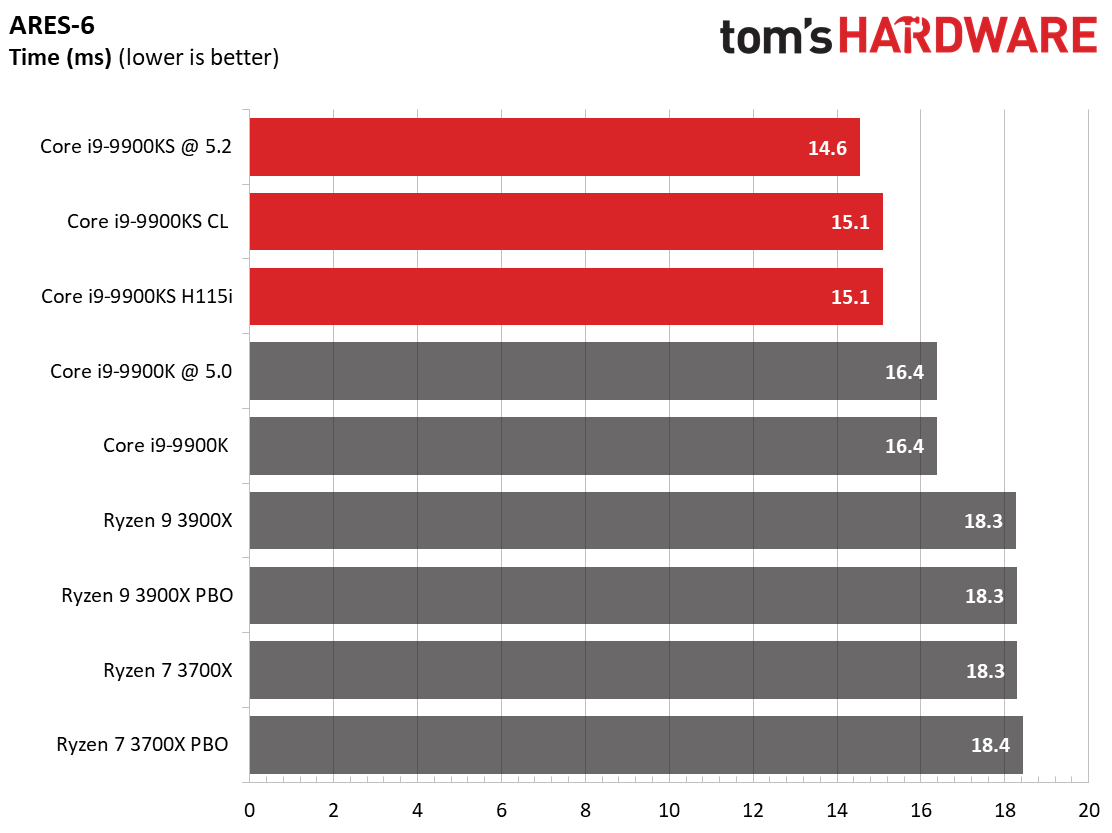
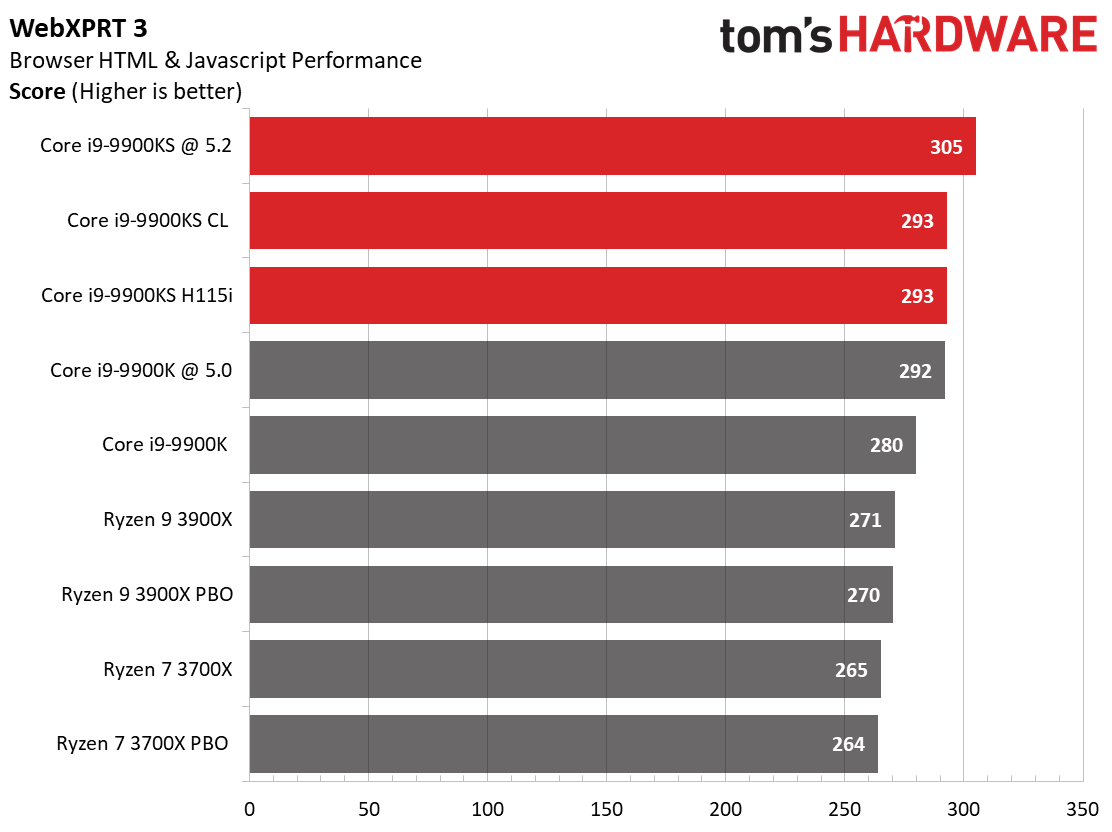
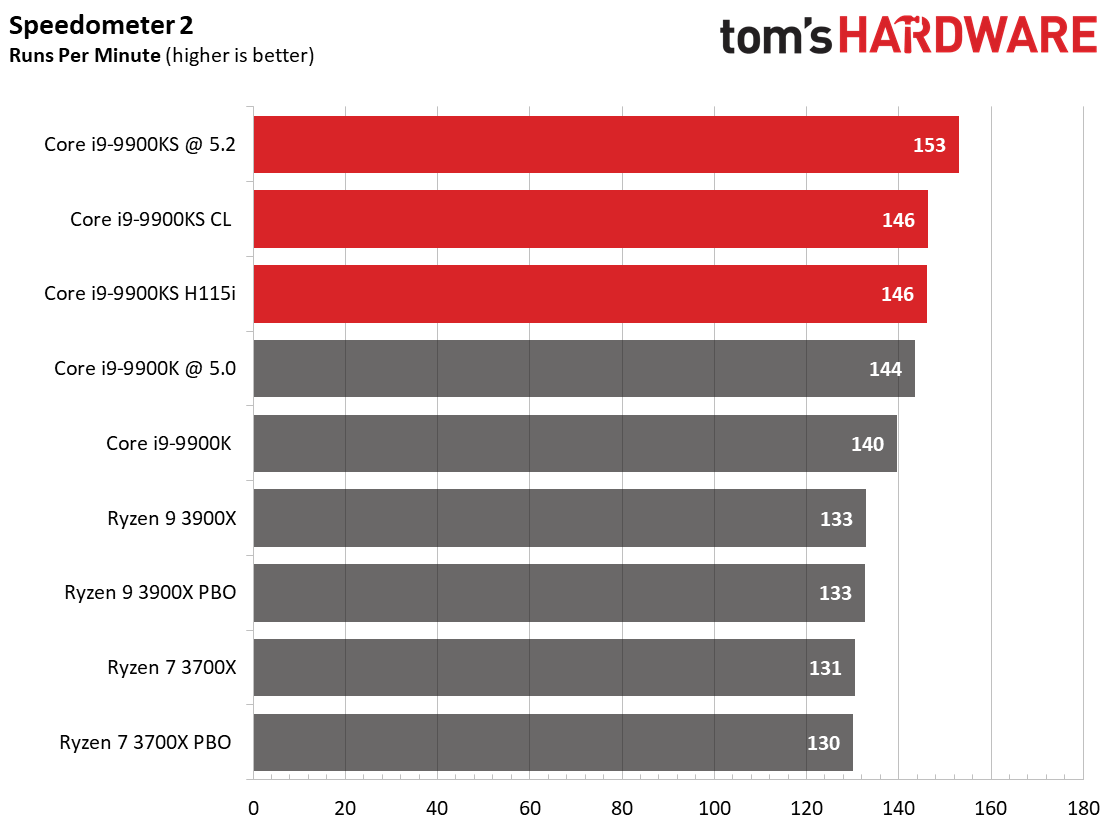
Browsers tend to be impacted more by the recent security mitigations than other types of applications, so Intel has taken a haircut in these benchmarks of fully-patched systems.
The ARES-6 web browser benchmark focuses on the latest and greatest JavaScript features, with a heavy focus on forward neural networks used for machine learning tasks, and browser responsiveness. Here the Core i9-9900KS leverages its single-threaded prowess to take the lead, and we see a similar pattern with the other browser workloads.
Encoding
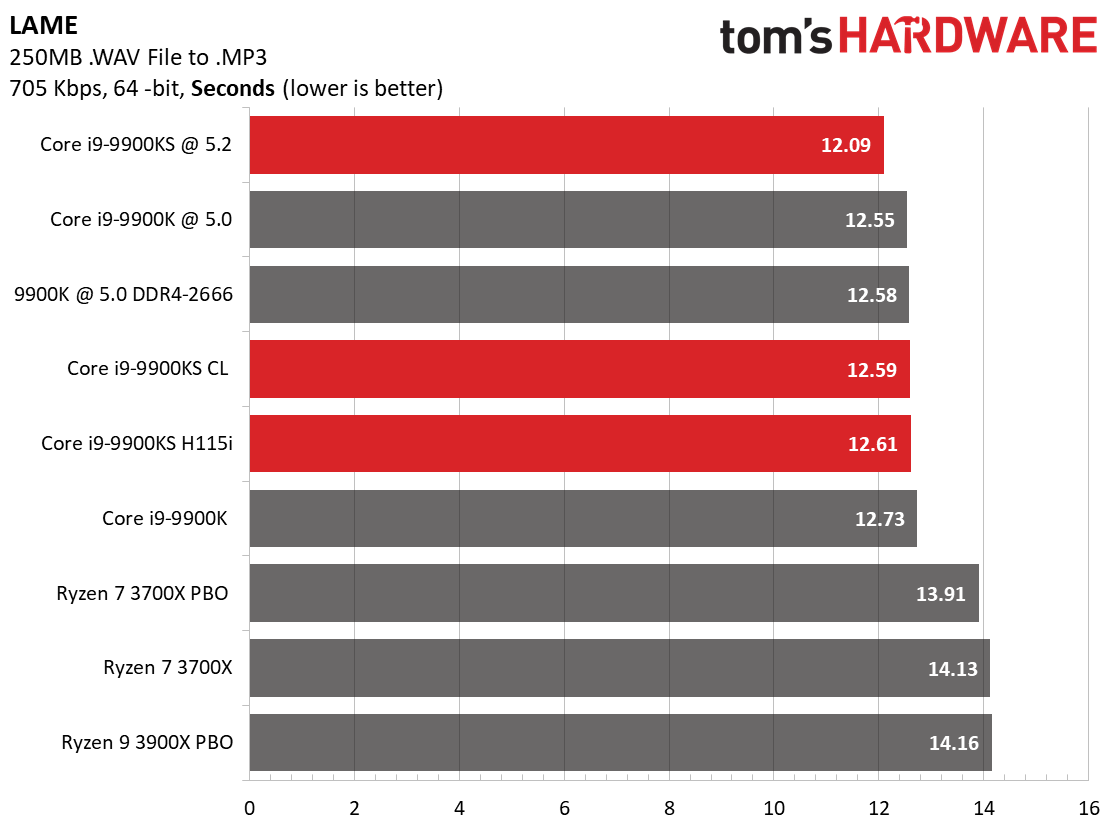
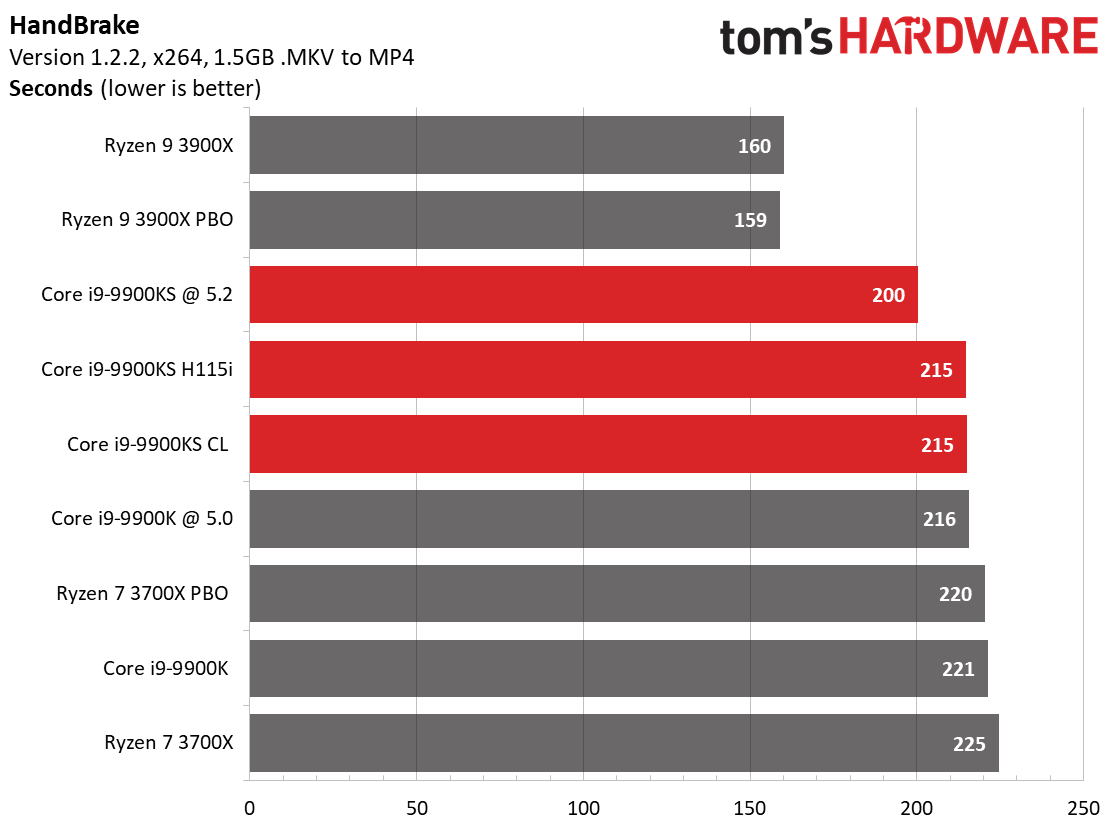
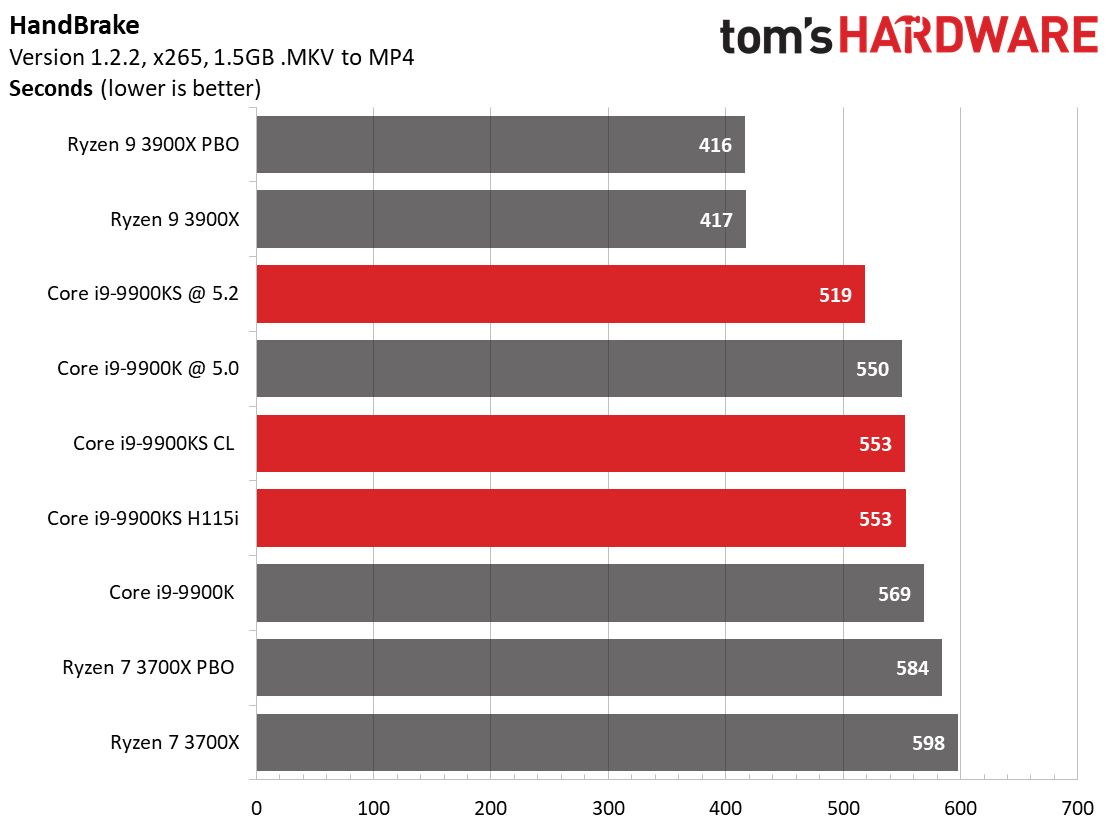
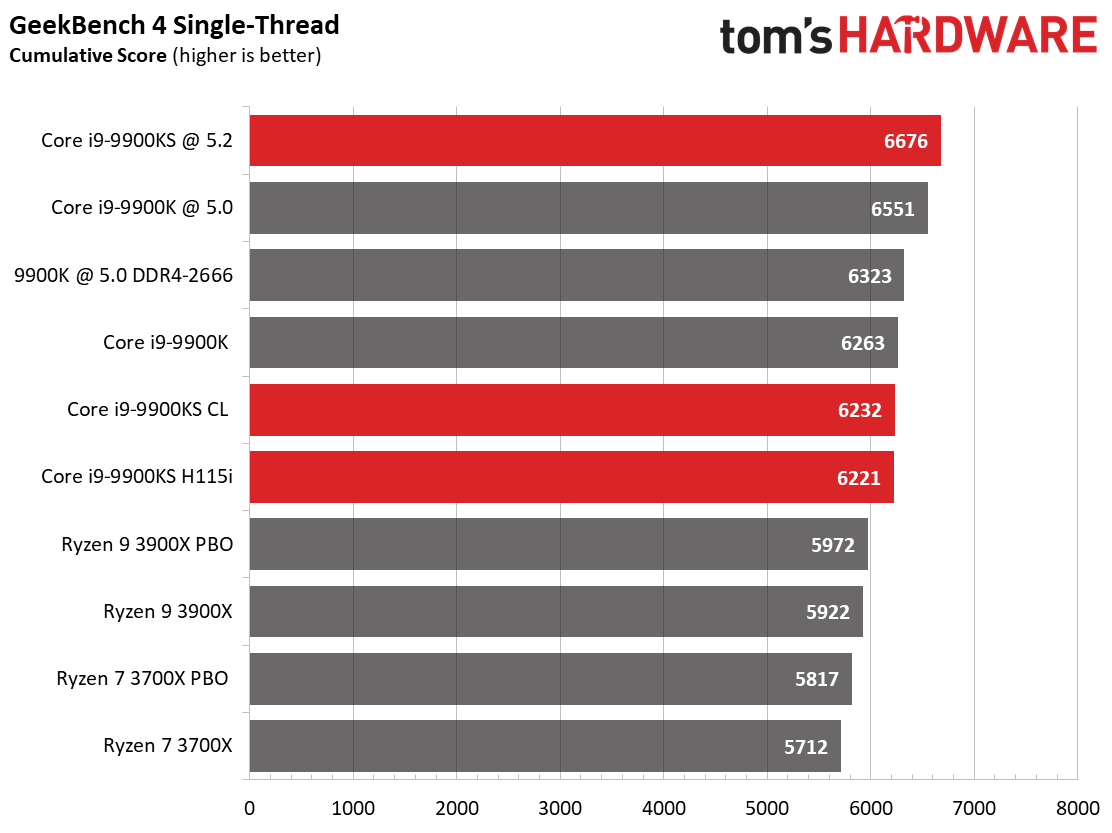
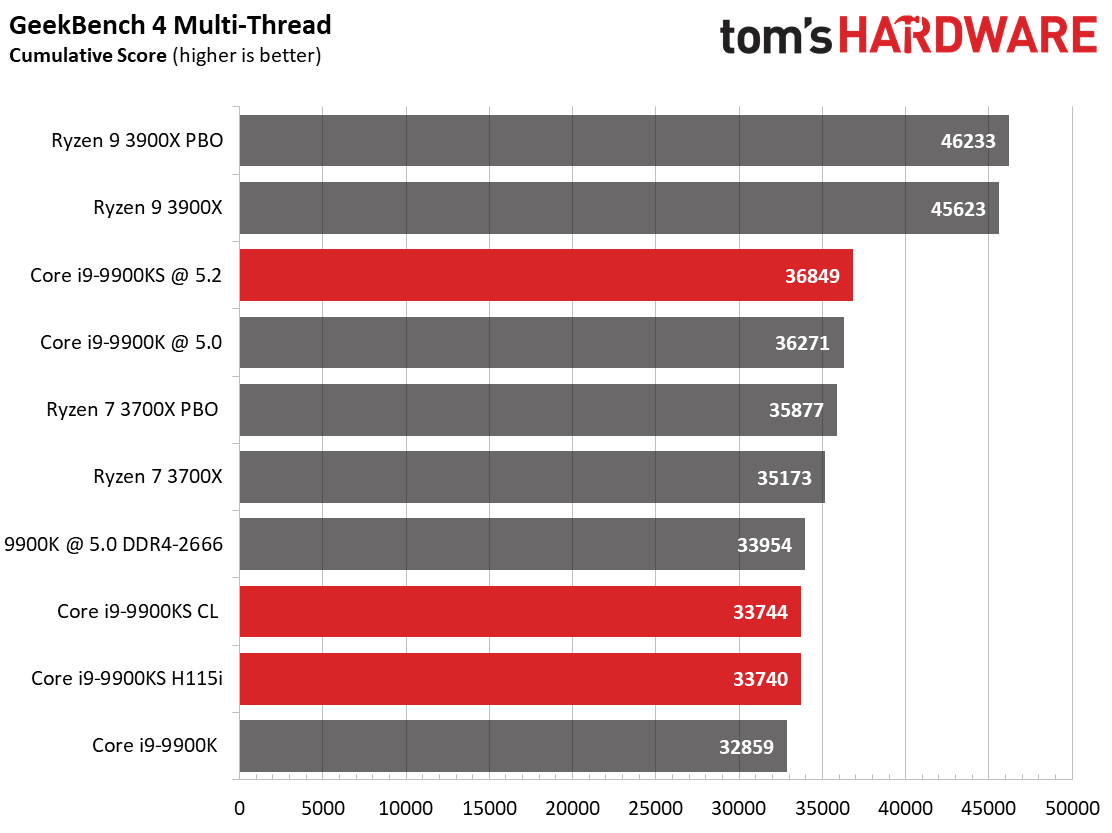
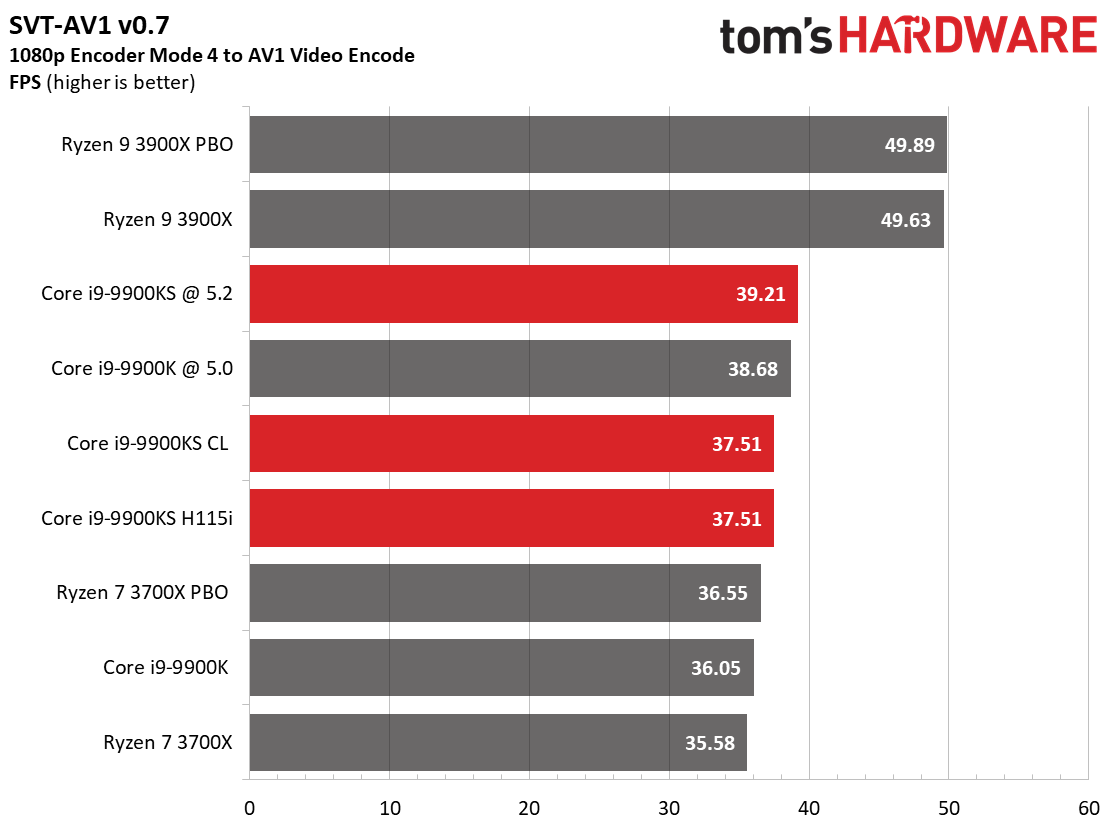
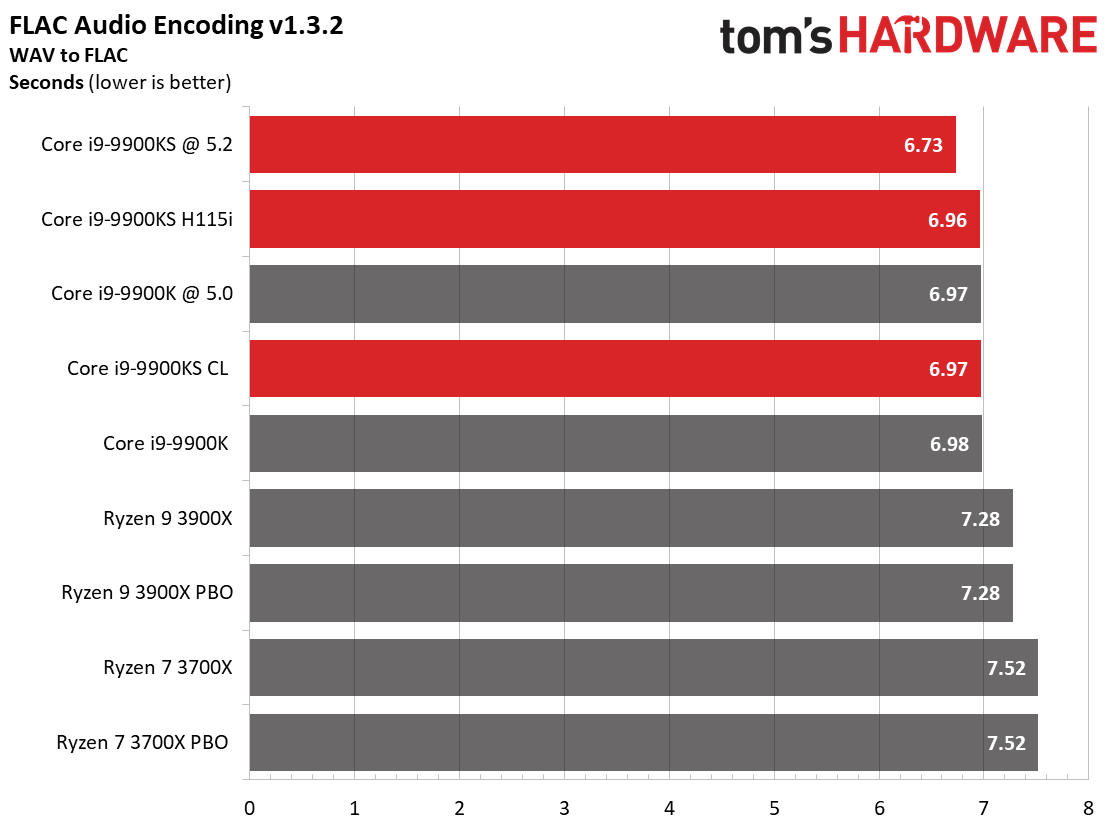
The SVT-AV1 encoder is an Intel- and Netflix-designed software video encoder that became available earlier this year. This new encoder is more scalable than other encoders, thus offering faster performance paired with efficient compression. While it may seem counterintuitive to use an Intel-designed encoder for testing AMD processors, consider that most encoders are inherently reliant upon per-core performance, which is a strength of Intel, while SVT-AV1 exposes the power of threading, a strength of Ryzen. At stock settings, the Ryzen 9 3900X dominates the test pool, but the auto-overclocking PBO feature does little to improve performance. We see expected gains from the -9900KS after overclocking, and the Core i9-9900K with tuned memory shows that memory data transfer rates have an impact on this test.
Our LAME and FLAC tests, like many encoders, rely heavily upon per-core performance. That means Intel's frequency advantage confers a big lead.
Intel processors traditionally leverage high frequencies to dominate the HandBrake x265 test, which relies heavily on AVX instructions, and the x264 test. But Intel's higher clock speed isn't too much of an advantage in these tests when the competition has twice the number of threads.
MORE: Best CPUs
MORE: Intel & AMD Processor Hierarchy
MORE: All CPUs Content
Get Tom's Hardware's best news and in-depth reviews, straight to your inbox.
Current page: Web Browser and Encoding
Prev Page Project Cars 2 and World of Tanks enCore Next Page Rendering, Compression, Decompression and Encryption
Paul Alcorn is the Editor-in-Chief for Tom's Hardware US. He also writes news and reviews on CPUs, storage, and enterprise hardware.
-
nitrium Yet another super underwhelming Intel release. I guess they'll up their game next gen, but at the price they're asking for it, it's at best "meh".Reply -
Aspiring techie There's almost zero reason to buy this CPU if the rumored price is accurate. It's only for those who want the absolute best gaming experience. For almost every other usage case in the $500 price bracket, the 3900X is the clear winner.Reply
I still find it funny that AMD's 12 core CPU consumes less power than Intel's 8-core. My how the times have changed... -
jimmysmitty ReplyAspiring techie said:There's almost zero reason to buy this CPU if the rumored price is accurate. It's only for those who want the absolute best gaming experience. For almost every other usage case in the $500 price bracket, the 3900X is the clear winner.
I still find it funny that AMD's 12 core CPU consumes less power than Intel's 8-core. My how the times have changed...
Considering the clock speed difference and that while its not quite 7nm it is still a smaller node than Intels 14nm its not surprising at all. If anything its to be expected. If Intel was using less power with a massive clock speed advantage on a larger process then something would be wrong. -
Aspiring techie Reply
I totally agree. 7nm especially has been a huge advantage on that front. It's just that AMD CPUs have traditionally been power hogs while Intel has been fast and power efficient. I find it funny that the roles are somewhat reversed now.jimmysmitty said:Considering the clock speed difference and that while its not quite 7nm it is still a smaller node than Intels 14nm its not surprising at all. If anything its to be expected. If Intel was using less power with a massive clock speed advantage on a larger process then something would be wrong. -
mitch074 Reply
"Power hog" is relative - at the time of the Athlon XP, the Pentium 4 had a secondary role as a room heater.Aspiring techie said:I totally agree. 7nm especially has been a huge advantage on that front. It's just that AMD CPUs have traditionally been power hogs while Intel has been fast and power efficient. I find it funny that the roles are somewhat reversed now. -
vinay2070 9900K @5Ghz performs better than 9900KS @5GHz and costs lesser ? OMG! I understand there are bug fixes, but the cost increase for very little performance increase, that too at 5.2GHz OC is not worth it IMHO. For the price of this CPU, I can get the 3700X/Mobo/16GB ram and it does not make a lot of difference at 1440P anyway.Reply -
unityole Replyadmin said:We take Intel's unreleased Special Edition Core i9-9900KS for a benchmarking spin.
Exclusive: Testing Intel's Unreleased Core i9-9900KS : Read more
is it possible to have Paul also test these new chips with mitigation on how they affect PCIe SSD performance? -
Bassben004 Reply
Another typo is the 49.95 per thread price for the 3900X. 499/24=49.95?? The whole point of this was to try and act like Intel was releasing a competitive product, but they are just pulling the same stuff as when they did the 8086K. A special bin for <2% increase and more $$mamasan2000 said:AMD 3900X is not a 14nm CPU. Guess that is a typo, should be 7 nm.